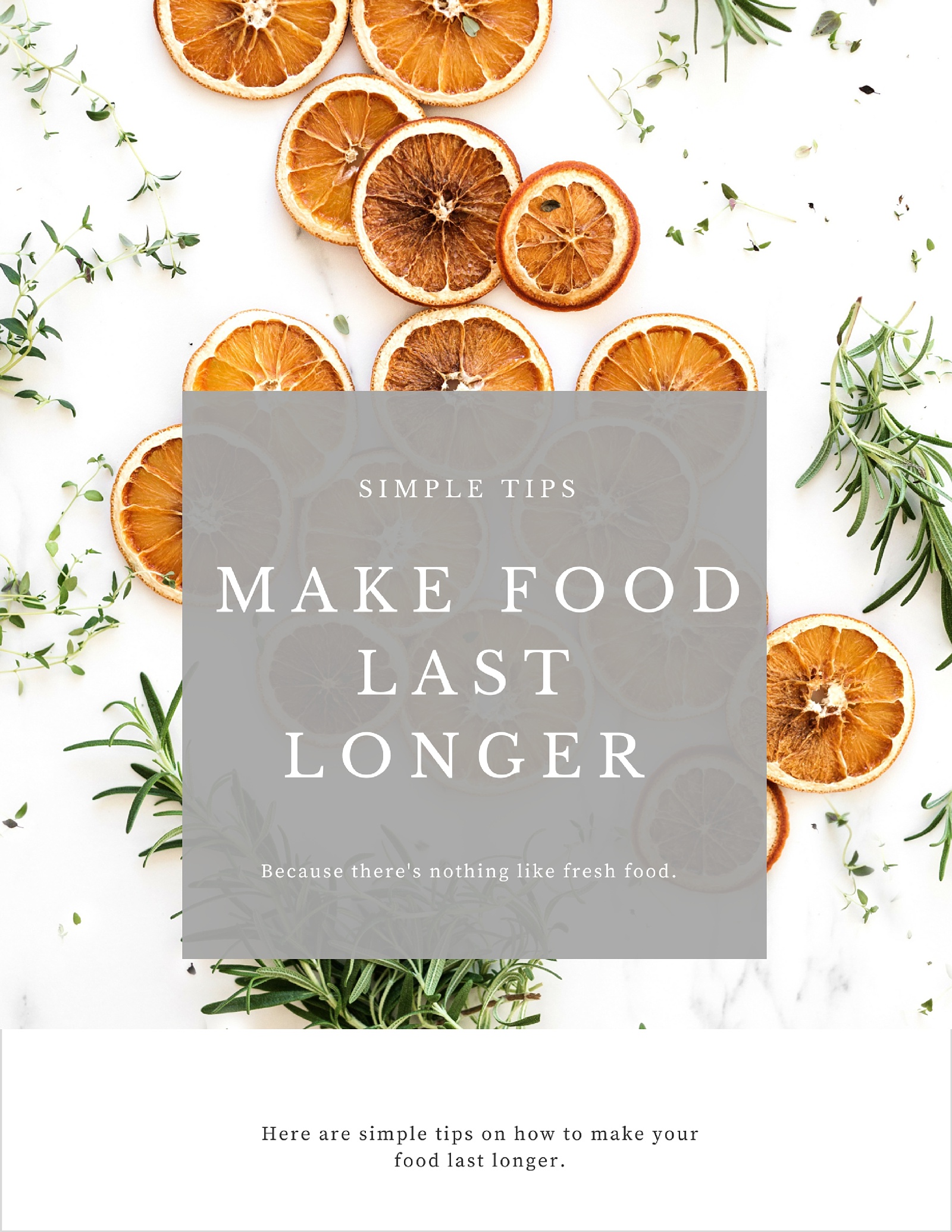
On average, American families trash 14 percent of the food they buy, often because it spoils. Heading to the grocery store is something a lot of you might dread due to the rising cost of food, as well as the huge pain in the rear end it often seems to be. And I bet it makes you sick to your stomach when you clean out your fridge only to realize how quickly some foods spoil. What a way to throw away money, right?
How To Make Food Last Longer
Instead of agonizing over wasted and spoiled food, try confronting the issue at hand and take charge. Show your food who’s boss, so to speak. You can easily extend the life of your groceries by implementing some of these everyday food storage tricks (and the best part is that you can save some money too):
Fruits and Vegetables
- Organize fruits and vegetable. We often toss produce into crispers together, but apples and some other fruits give off gas called ethylene that speeds ripening in vegetables. Store some of the items separately so that your vegetables don’t ripen too fast.
- Store fruits and vegetables susceptible to drying out in a perforated or unsealed plastic bag to maintain environment yet still allow air to circulate.
- Don’t wash produce before placing in the refrigerator. The dampness can make the product mold and rot faster.
- Know which foods need room temperature. We tend to keep most of our fruits and vegetables in the refrigerator. However, cold temperatures can actually damage some produce, like squash, tomatoes and oranges.
- Purchase produce that is not bruised or damaged.
- When selecting fresh-cut produce – such as half a watermelon or bagged salad greens – choose items that are refrigerated or surrounded by ice.
- Refrigerate all produce that is purchased pre-cut or peeled.
Meats, Fish and Poultry
- Keep all fresh meat, fish and poultry in their wrappings. If the item didn’t come on a Styrofoam tray, slide a plate underneath it to catch and drippings.
- Buy meat as fresh as possible and cook it within two days of buying (unless you plan on freezing it).
- Package meat properly for freezer storage to avoid freezer burn. Bundle the meat as you plan to cook it, then wrap the meat in clear plastic wrap. Make sure there are no air pockets where freezer burn likes to form. Next, wrap the package in butcher wrap and seal with tape. These two layers will provide good insulation to protect the meat from freezer burn. It’s also a good idea to label and date each package.
Dairy
- Put dairy products in the refrigerator within two hours of purchase and freeze ice cream as soon as possible.
- Check the expiration date on the packages and don’t keep dairy products longer than the recommended date.
- Store butter in the refrigerator for up to two weeks, or wrap it in a moisture-safe material and freeze. It will usually keep in the freezer for six to nine months if the temperature is kept at 0 degrees F.
- Leave cottage cheese, yogurt, sour cream, milk and cream in their containers.
- Store hard cheeses in the store wrapping until they need to be used, then wrap them in wax paper, foil or loose plastic wrap.
Leftovers
- Shield leftovers from the air. Many of us end up throwing out leftovers because they went bad. To prevent it, don’t just cover the top of the bowl with foil or plastic wrap. Instead, transfer your leftovers to an airtight food storage container to keep them fresh.
- Refrigerate leftovers within two hours of cooking. There’s no need to wait for piping-hot food to cool down before storing them – modern refrigerators can handle the heat.
- Don’t refrigerate leftover canned foods in cans. Once a can is opened, residual metal on the rim can leach into food and leave a metallic taste.
- Don’t stuff the refrigerator too full. Cool air needs to circulate to keep food at a safe temperature.
For more tips on safe food storage, check out this site. It’s filled with helpful tips and tricks to help make food last longer, while at the same time keeping more money in your wallet. What’s not to love about that?
What are your best food storage tips?






Leave a Reply